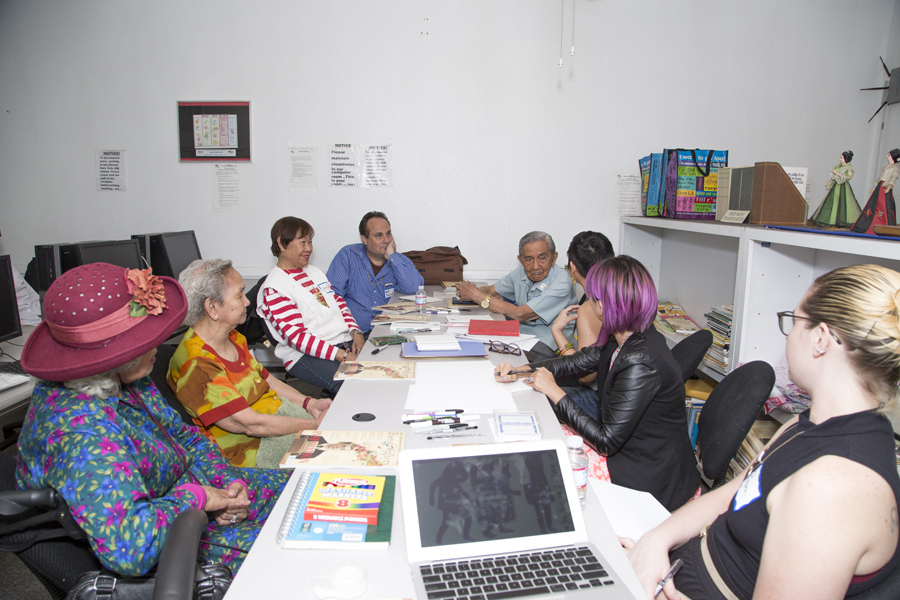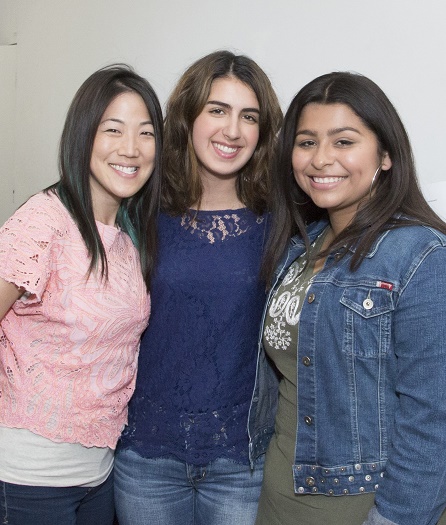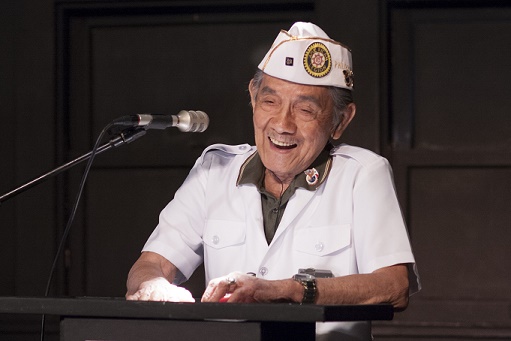Writing and Solitude, Writers on Brexit, and More
Chris Jackson to receive AAWW’s Editorial Achievement Award; Annie Proulx talks books; Adrienne Rich as the archetype of feminism; and other news.
Jump to navigation Skip to content
Chris Jackson to receive AAWW’s Editorial Achievement Award; Annie Proulx talks books; Adrienne Rich as the archetype of feminism; and other news.
Ta-Nehisi Coates on becoming a public figure; American families in fiction; Amazon’s picks for the best books of the year so far; and other news.
For a couple of months this past spring, anyone in the world with a phone connection could dial a Swedish phone number and “be connected to a random Swede, somewhere in Sweden” for a brief chat about anything under the sun. The Swedish Tourist Association created the “Swedish Number” to draw interest in the country by allowing everyday Swedes to act as ambassadors of that nation. Choose a country you’ve never visited before but are interested in, and write a personal essay exploring what you would ask if given the opportunity for a ten-minute chat with one of its citizens. Then turn the focus on yourself, speculating on the specific reasons for your curiosity. Would you instinctively approach the conversation as an opportunity for a political discussion or a personal one? What would you say if you were called to be an ambassador of your own country?
"I kind of always assume that you don't write the poem you want to write...that's actually quite freeing because it means you discover something in the act of composition that you didn't know in advance." Ben Lerner talks about his first poetry collection, The Lichtenberg Figures (Copper Canyon Press, 2004), for the Paris Review's "My First Time" video series. Lerner's first nonfiction book, The Hatred of Poetry (Farrar, Straus and Giroux, 2016), is featured in Page One in the July/August issue of Poets & Writers Magazine.
Melissa Sipin, the McCrindle Foundation Readings & Workshops Fellow, reflects on the Intergenerational Workshop Exchange (IWE), a community project where teens and seniors wrote in response to each other, then shared their work at a reading. For the inaugural IWE, teens from St. Bernard High School and World War II Filipino American veterans and their family members from the Filipino American Service Group, Inc. (FASGI), took part in the collaborative workshop series over a three-month period this past spring. Below, Sipin reflects on her experience as organizer and cofacilitator, and shares a few excerpts from the participants. (Stay tuned for next week's companion post by Angela Peñaredondo, teaching artist for the senior workshop at FASGI.)

During the months of February and March, Poets & Writers supported two writing workshops as part of the first Intergenerational Workshop Exchange (IWE)—a rare writing exchange between seniors and youth that reached teens from St. Bernard High School and a group of World War II veterans and their family members from the Filipino American Service Group, Inc. The project culminated with a celebratory reading titled Connecting Generations on April 17 at Beyond Baroque in Venice, California.
The IWE was my passion project as the 2015-2016 McCrindle Foundation Readings & Workshops Fellow. I personally chose to focus on working with a unique and highly underrepresented senior population, World War II Filipino American veterans (learn more about their activism at Justice for Filipino American Veterans), as many are quickly aging and passing away without ever having their voices heard. My own grandfather, Major Diego A. Sipin, was a guerrilla fighter and officer in the U.S. Armed Forces in the Philippines, Northern Luzon, who passed away without receiving the full recognition of his wartime active duty service. Pairing the Filipino American veterans with St. Bernard High School students—many of whom are children of immigrants from all corners of Los Angeles—was a moving way to bring to light their shared and collective experiences. During the workshops, teaching artist Traci Kato-Kiriyama had the St. Bernard High School students write a letter to their imagined grandchildren. In response, teaching artist Angela Peñaredondo had the seniors write to their actual grandchildren. After reading the seniors’ brief but poignant letters—which detailed their wartime experiences and migrations to America—the students then wrote to the seniors directly, sharing and exchanging their own family stories of migration. They described in visceral detail the smells, sights, and tastes of where they came from—the taste of hummus on a hot, balmy day in Beirut or how the sun shone on a small village near the border in Mexico—which in turn created a deep and touching connection across generations.
During the workshops, teaching artist Traci Kato-Kiriyama had the St. Bernard High School students write a letter to their imagined grandchildren. In response, teaching artist Angela Peñaredondo had the seniors write to their actual grandchildren. After reading the seniors’ brief but poignant letters—which detailed their wartime experiences and migrations to America—the students then wrote to the seniors directly, sharing and exchanging their own family stories of migration. They described in visceral detail the smells, sights, and tastes of where they came from—the taste of hummus on a hot, balmy day in Beirut or how the sun shone on a small village near the border in Mexico—which in turn created a deep and touching connection across generations.
One of the most moving moments during the celebratory reading was Franco Arcebal’s letter to his great-granddaughter, Veronica. Before he read his letter, he shared a brief portrait of his life during the war—how he was tortured with electric shocks, baseball bats, and water; how he escaped the “monkey house,” a makeshift prisoner-of-war camp the Japanese soldiers used as an execution house. He told the crowd that he could never really answer his great-granddaughter’s questions about the war, and that every time she asked, he was filled with silence…until he participated in the writing workshop with his fellow lolas (“grandmother” in Tagalog), all of whom were widows of World War II Filipino American veterans. Here is an excerpt of his letter:
We were six in the monkey house.
I was the youngest. 20. What they considered fresh and young and robust, something that needed to be broken.
I was the most severely tortured. My body still remembers. Sometimes I want to forget. But this body, it remembers.
 In loving response, one of the high school students, Yonathan Dereje, dedicated his piece to Arcebal:
In loving response, one of the high school students, Yonathan Dereje, dedicated his piece to Arcebal:
Your great-granddaughter will love you, and you will love her. She is your privilege.... Your love for her wasn’t scarred, but only made it even more resilient. Your experience made you tougher and teaches me how to be resilient, and will forever teach me how to love and never give up.
The three-month project could not have been successful without our community partnerships, and I would like to personally thank the following for their precious time: teacher and poet Mike Sonksen, St. Bernard High School, the Filipino American Service Group, Inc., Beyond Baroque Literary/Arts Center for hosting the celebratory reading, and teaching artists Traci Kato-Kiriyama and Angela Peñaredondo.
These intimate letters are a testament to the power of sharing stories across cultures and generations—we share them because it is proof that what we hold dear and what we call home tend to always be the deep, unbreakable bonds we form with each other.
You can read work produced by teen and senior participants of the inaugural Poets & Writers’ Intergenerational Workshop Exchange in a special issue of TAYO Literary Magazine titled “Connecting Generations.”
Photo 1: (from left) Workshop participants Beverly Siapno, Cleotilde Bisnar, Anacurita Santos, David Rockello, Franco Arcebal, workshop leader Angela Peñaredondo, and P&W staff members Melissa Sipin and Brandi Spaethe. Photo 2: Workshop leader Traci Kato-Kiriyama with St. Bernard High School students Rose Rteimeh and Rosalinda Flores. Photo 3: Senior workshop participant and World War II veteran Franco Arcebal. Photo credit: Tess. Lotta.
Major support for Readings & Workshops in California is provided by the James Irvine Foundation and the Hearst Foundations. Additional support comes from the Friends of Poets & Writers.
The Brady Bunch, Married With Children, The Simpsons, Leave It to Beaver, Freaks and Geeks, That ‘70s Show. These television sitcoms, and others, have provided us with many memorable father characters over the years. Choose a favorite TV dad, past or present, and write an essay that explores the reasons behind your choice. What does your chosen sitcom dad reveal about your personality? Are there aspects of this character’s behavior that reflect the kind of guidance you wished you had growing up?
Author, editor, and agent Betsy Lerner talks to her mother, the inspiration behind Lerner's latest memoir, The Bridge Ladies, published in May by Harper Wave.
"You can't be an activist or a writer or a public figure all day long, and I just have to be myself." Roxane Gay, author of the best-selling essay collection, Bad Feminist (Harper Perennial, 2014), talks about Twitter, adapting her novel, An Untamed State (Grove/Atlantic, 2014), to film, and the unexpected pressures of literary fame at the 2016 AWP conference and book fair in Los Angeles.
From cities across the globe come reports of increasingly untraditional and casual fashion choices when it comes to getting married: brides in New York City who opt to wear wedding pants instead of a gown, and couples in Beijing showing up to the marriage registration office wearing “sleeveless shirts and shorts, or slippers.” Write a personal essay that examines the progression of your own clothing choices. Have you gone through phases when your outfits—whether influenced by a job, emotional state, or cultural shifts—were formal or informal, plain or adorned, monochromatic or colorful?